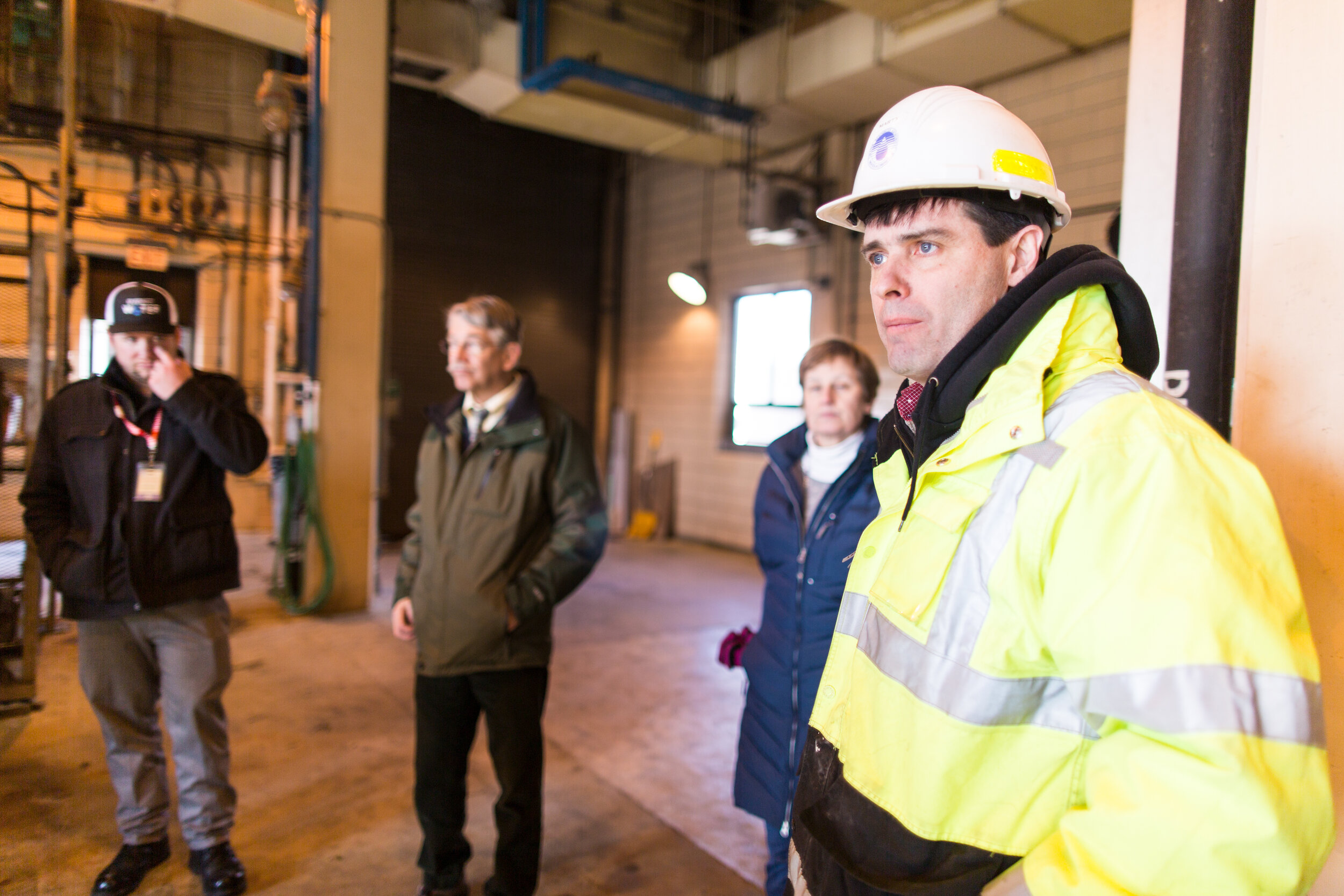Arlington, MA, February 5, 2020—Nine communities in the Mystic River Watershed announced that they collectively secured $1,161,703 in individual and regional Municipal Vulnerability Preparedness (MVP) action grants for climate resilience efforts. Of this, nearly 75% went to two regional grants focused on managing physical and social harm from major coastal storms.
Each community is a member of the Resilient Mystic Collaborative (RMC), a voluntary partnership that has grown to 18 municipalities since its launch in September 2018. The RMC includes non-profit and private sector partners as content experts, with senior municipal staff serving as the group’s voting parties. Mystic River Watershed Association and Consensus Building Institute staff facilitate the RMC. These grants add to over $1.3 million in regional climate funding the coalition had already raised.
“The Baker-Polito Administration has made climate change adaptation a priority, fostering collaboration with local communities through the MVP Program to support important resiliency projects, like those taking place within the Mystic River Watershed,” said MVP Regional Planning Coordinator Carolyn Meklenburg. “By working with several municipalities to advance our shared resiliency agenda, we are able to more effectively leverage funds and resources leading to a greater impact on a regional scale.”
“The MVP program has been a game-changer in our watershed,” said Julie Wormser, deputy director of the Mystic River Watershed Association. “We would love to see it get much bigger with a dedicated source of funding. As it is, municipalities could use every penny in the program just in our watershed.”
Chelsea and Everett partnered on a $454,555, 18-month grant to manage flooding from the Island End River. "The reality of climate change will disproportionately impact communities such as Chelsea," said City Manager Thomas G. Ambrosino. "This grant enables Chelsea and Everett to design and permit a critical flood protection project along the Island End River, in partnership with the Resilient Mystic Collaborative and GreenRoots. At the same time, we'll continue to work with our regional partners to address the social and health impacts of climate change."
Lower Mystic municipal staff touring Mass Water Resources Authority climate resiliency improvements in Chelsea, MA. Somerville received a $390,000 regional grant for municipalities and infrastructure managers to work on coastal storm preparedness.
“A century ago, our ancestors buried the Island End River to form one of the largest produce distribution centers in Massachusetts,” said Everett Mayor Carlo DeMaria. “Although a positive for the region, it has resulted in flooding of many Everett neighborhoods. By partnering with the City of Chelsea, we will now prepare for sea level rise by creating a living shoreline and walking path to dramatically reduce the risk to vulnerable populations, infrastructure, and businesses at the northern end of the Island End River.”
Somerville received a $389,995, 18-month regional grant on behalf of seven communities including itself, Boston, Chelsea, Everett, Medford, Winthrop and Revere. This funding will allow these communities to work with critical regional infrastructure managers to identify operational and capital improvements needed to maintain business continuity and prevent harm to vulnerable residents and workers during and after extreme coastal storms.
“Somerville released its Climate Vulnerability Assessment in 2017, and one of the main things we learned is that Somerville can’t go it alone,” said Mayor Joseph Curtatone. “Particularly with coastal flooding, our municipal boundaries are meaningless. I’m proud that Somerville is leading this strong collaboration with the Mystic River Watershed Association and fellow cities, and we thank the EEA for recognizing that innovative work needs to be done to understand how climate change impacts our interconnected communities.”
City of Woburn employee Matt Barrett answers questions during a site visit to the Shaker Glen wetlands restoration project that just received $145,445 in MVP funding.
In addition to these regional grants, three RMC communities received individual funding. Woburn is getting $145,445 to expand the 20-acre Shaker Glen conservation area, de-pave and restore wetlands, improve water quality and alleviate urban flooding. “Woburn has been looking to restore wetlands and improve flood storage capacity in the Shaker Glen area for some time,” said Mayor Scott Galvin. “The MVP Action Grant allows us to move forward with this exciting project.”
Medford secured two grants totaling $101,395 focusing on increasing the social resilience of its most vulnerable residents. One grant is for equity-centered climate planning, and the other is for a suitability assessment for equitable, community-driven resilent hubs.
“I’m thrilled that the City of Medford applied for and is receiving two grants from the MVP program that are both designed to enhance our communications with diverse populations around the critical issue of climate change,” said Mayor Breanna Lungo-Koehn. “It is exciting that the Board of Health is working to understand the needs of socially vulnerable residents in the face of climate disruptions. The Office of Energy & Environment has been doing excellent work to understand the vulnerabilities of our city and this partnership with the Medford Family Network will expand its capacity to bring this information further into the community and hear concerns and needs from a diverse range of residents.”
Finally, Melrose is getting $70,313 to design a green infrastructure solution for the Melrose City Hall Parking Lot to alleviate regular flooding and provide downstream water quality improvements in the Mystic River Watershed. “Being able to leverage state funds while addressing an ongoing infrastructure problem using green methods and technologies is a tremendous opportunity for Melrose to continue to demonstrate our leadership when it comes to environmental stewardship,” said Mayor Paul Brodeur.
For more information: https://mysticriver.org/climate-resilience







